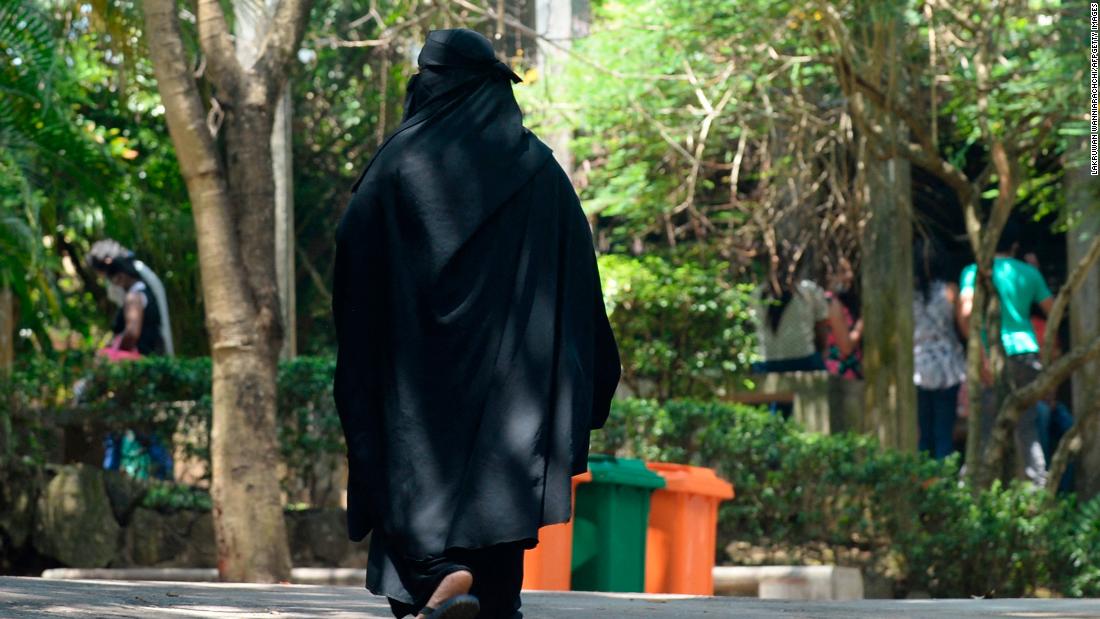
A burqa is a piece of clothing worn by some Muslim women that covers the entire body, including the face, with gauze over the eyes.
Sarath Weerasekera, the country’s public security minister, signed a document Friday for government approval to ban burqas on grounds of “national security”.
“In our early days, Muslim women and girls never wore the burqa,” he said at a news conference on Saturday. “It is a sign of religious extremism that has emerged recently. We are definitely going to ban it.”
In the days following the attacks, Sri Lankan intelligence services said they believed the suicide bombers had clear links with ISIS. The alleged mentor and leader, Zahran Hashim, was a radical Islamist preacher, known to the authorities and the local Muslim community.
Later that year, Gotabaya Rajapaksa, best known for crushing a decades-long uprising in the north of the country as defense minister, was elected president after pledging to fight extremism.
Rajapaksa is charged with widespread rights violations during the war, allegations he denies.
Weerasekera said the government plans to ban more than 1,000 madrassa Islamic schools that it says ignore national education policies.
“No one can open a school and teach the kids whatever you want,” he said.